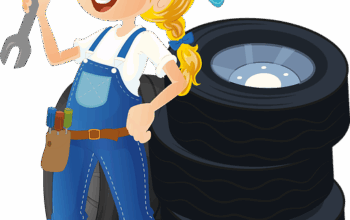Understanding and maintaining HVAC systems is crucial for homeowners. Regular inspection involves checking for leaks, cleaning filters, and examining electrical connections. Promptly addressing issues like unusual noises, inefficient heating/cooling, or musty odors prevents severe damage and saves on energy costs. Investing in regular maintenance ensures a comfortable living environment year-round, enhances energy efficiency, and prolongs equipment lifespan. Monitoring energy bills and performing timely maintenance are key to making informed decisions about repairing or replacing HVAC systems. Choosing the right professionals for home repair and maintenance is vital, ensuring credentials, experience, positive reviews, detailed estimates, references, insurance coverage, and good communication skills.
In the pursuit of comfortable living, understanding and maintaining your HVAC system is crucial. This comprehensive guide delves into the intricacies of heating, ventilation, and air conditioning (HVAC) systems, equipping homeowners with essential knowledge. We explore regular maintenance practices to ensure longevity, offering tips on identifying common issues early.
From repair vs. replacement decisions to best practices and choosing skilled professionals, this article is your go-to resource for optimal home repair and maintenance.
- Understanding HVAC Systems: A Homeowner's Guide
- Regular Maintenance: The Key to Long-Lasting Comfort
- Common HVAC Issues and How to Spot Them Early
- Repair vs. Replacement: When to Opt for Each
- Best Practices for Efficient HVAC Maintenance
- Choosing the Right Professionals: Tips for Effective Home Repair
Understanding HVAC Systems: A Homeowner's Guide
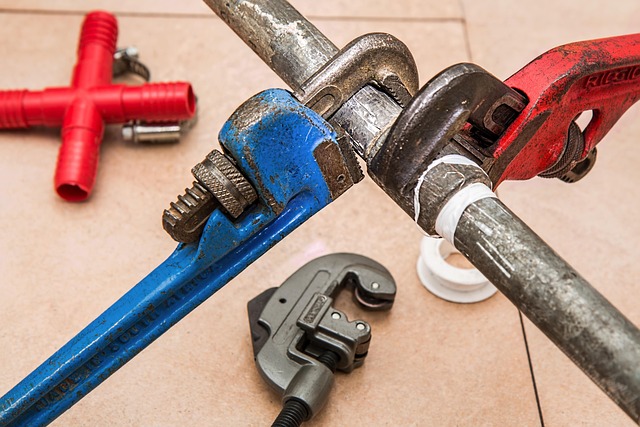
Understanding HVAC systems is essential for homeowners looking to effectively maintain and repair their homes. HVAC, or Heating, Ventilation, and Air Conditioning, is a complex network designed to regulate indoor climates. It includes various components like furnaces, air conditioners, heat pumps, thermostats, and ductwork. Each part plays a crucial role in ensuring comfort and air quality.
Homeowners should familiarize themselves with these systems to recognize potential issues. Regular inspection involves checking for leaks in ductwork, cleaning or replacing air filters, and examining the condition of electrical connections. Promptly addressing problems like unusual noises, inefficient heating/cooling, or musty odors can prevent severe damage and save on energy costs. Home repair and maintenance for HVAC systems is an investment that ensures a comfortable living environment throughout the year.
Regular Maintenance: The Key to Long-Lasting Comfort
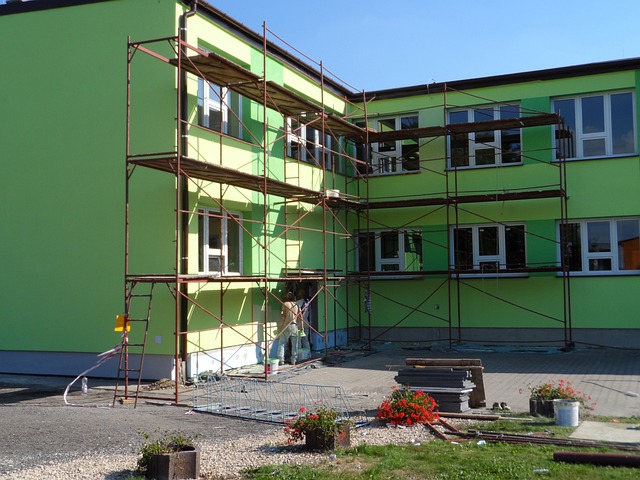
Regular maintenance is an often-overlooked aspect of home ownership, but it’s a crucial element in ensuring your heating, ventilation, and air conditioning (HVAC) system runs efficiently and lasts for years to come. In the realm of home repair and maintenance, a proactive approach can save you from costly repairs and uncomfortable living conditions. By scheduling routine inspections and cleaning, you can identify potential issues early on, preventing them from escalating into major problems.
A well-maintained HVAC system doesn’t just improve comfort; it also enhances energy efficiency. Over time, accumulation of dust and debris in vents and filters can restrict airflow and reduce the system’s performance. Regular maintenance involves changing filters, cleaning ducts, and lubricating moving parts, all of which contribute to optimal operation. This simple yet effective practice not only extends the lifespan of your HVAC equipment but also reduces energy consumption, resulting in lower utility bills for folks who appreciate a comfortable home environment.
Common HVAC Issues and How to Spot Them Early
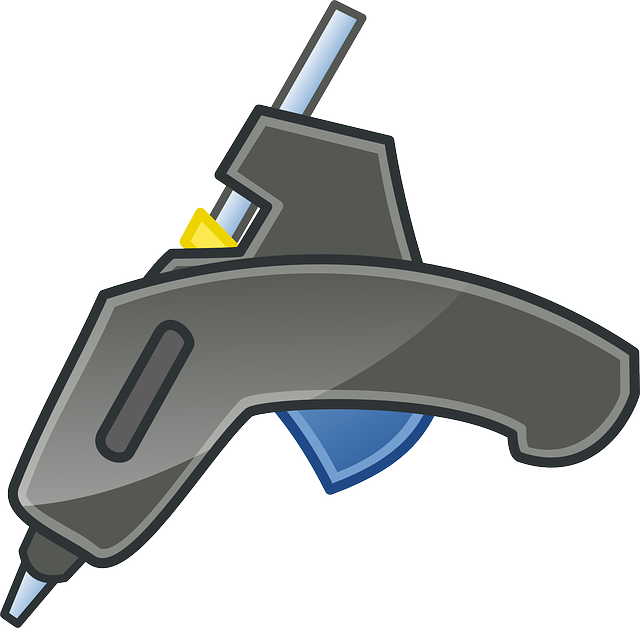
Many common HVAC issues can be easily spotted with some basic knowledge and regular observation. One of the first signs to look out for is unusual noise coming from your system, such as banging or grinding sounds, which could indicate loose parts or damage. Another red flag is inconsistent temperature distribution in your home; if certain rooms are significantly warmer or colder than others, it might suggest issues with ductwork or a faulty thermostat.
Regular maintenance, including cleaning or replacing air filters and checking for leaks, can help prevent these problems. Homeowners should also pay attention to changes in energy bills; sharp increases could signal inefficiencies caused by outdated equipment or improper setup. Early detection of these issues through routine inspections and simple checks can save you from costly repairs and ensure your home’s comfort year-round.
Repair vs. Replacement: When to Opt for Each
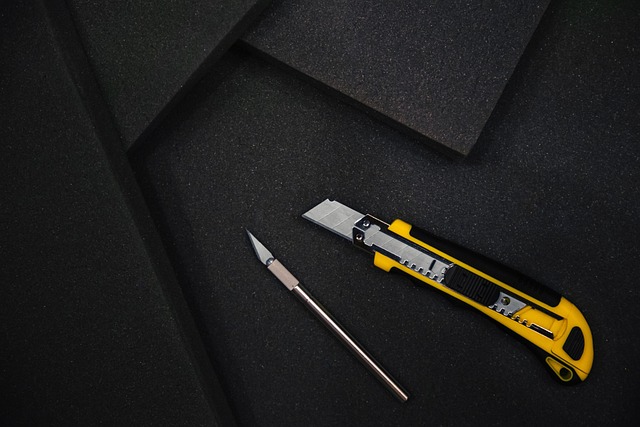
When it comes to HVAC (Heating, Ventilation, and Air Conditioning) systems, deciding between repair and replacement can be a tricky balance for homeowners. Regular home repair and maintenance play a vital role in extending the lifespan of your HVAC equipment. However, there will be instances where replacement becomes inevitable.
The age and condition of the unit are primary factors to consider. If your HVAC system is older and has consistently required minor repairs over the years, it might be more cost-effective to invest in a new one. Newer models are often more energy-efficient, which can lead to long-term savings on utility bills. On the other hand, if the unit is relatively new but experiencing significant issues, repairing it could be justified, especially if the problem is fixable and will extend its lifespan. Regular maintenance checks can help in making this decision by identifying potential issues early on, allowing for more informed choices between repair and replacement during home repair and maintenance routines.
Best Practices for Efficient HVAC Maintenance
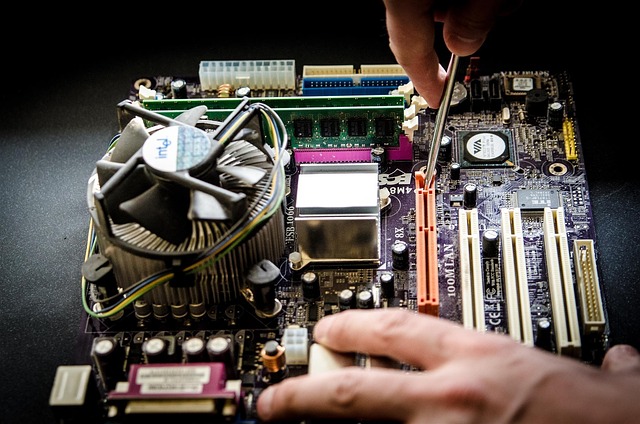
Maintaining your home’s heating, ventilation, and air conditioning (HVAC) system is crucial for both comfort and energy efficiency. Regular checks and proactive measures can significantly extend the lifespan of your HVAC unit and prevent costly repairs. Here are some best practices to ensure efficient HVAC maintenance.
First, schedule routine inspections by certified professionals. These experts can identify potential issues early on, such as leaks in the refrigerant lines or dirt buildup in filters. Regular cleaning and replacement of filters not only improves air quality but also ensures your system operates smoothly. Additionally, keep an eye on energy usage; sudden spikes could indicate a problem. Timely maintenance, including cleaning vents and checking for mold growth, is key to maintaining optimal performance. By following these practices, you’ll ensure your HVAC system runs efficiently, safely, and reliably throughout the year, enhancing both your home’s comfort and your overall home repair and maintenance strategy.
Choosing the Right Professionals: Tips for Effective Home Repair

When it comes to HVAC (Heating, Ventilation, and Air Conditioning) maintenance and repair, choosing the right professionals is paramount for effective home repair. Start by verifying their credentials, experience, and licensing to ensure they meet industry standards. Check online reviews from previous customers to gauge their reputation and the quality of their work. Reputable companies often provide detailed estimates upfront, ensuring transparency in pricing and scope of work.
Asking for references and verifying their insurance coverage are also wise steps. Effective communication is key; professionals who take the time to listen to your concerns and explain the repair process in understandable terms are more likely to deliver quality service. Look for specialists who offer a comprehensive range of services, from routine maintenance to complex repairs, ensuring they can handle any issue that arises.
In the realm of home repair and maintenance, a well-maintained HVAC system is paramount for comfort and energy efficiency. By understanding the basics of HVAC systems, homeowners can proactively address regular maintenance needs. Early detection of common issues through meticulous observation and periodic checks can prevent costly repairs or premature replacements. When deciding between repair and replacement, considering the age, condition, and cost of the system is crucial. Following best practices and enlisting the expertise of qualified professionals ensures optimal HVAC performance and longevity.


